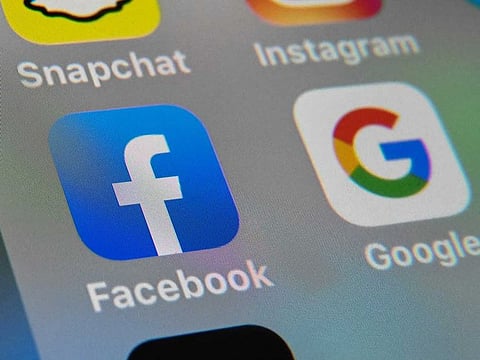Tech giants muscle their way into hoarding your personal data
Google and Facebook's share of the online ad market will grow to 61.4 per cent this year

New Delhi: Before you fume once again over the mishandling of consumers data at the hands of big social media platforms and Search giants, you need to understand that wars in the future will not occur over physical assets but billions of digital footprint to gain maximum control over personal data.
By 2025, it's estimated that 463 exabytes (EB) of data will be created each day globally -- equivalent of data in 22 crore DVDs per day!
In the coming years, the entire digital universe is expected to reach 44 zettabytes by 2020 (one zettabyte is approximately 1,000 EB, a billion terrabytes (TB) or a trillion GB).
If we look today, 500 million tweets are being sent daily, along with 294 billion emails globally.
Four petabytes (1,000 TB) data is being created on Facebook, 65 billion messages are being sent on WhatsApp and 5 billion searches are being made on Internet daily as we read this, according to a report by Vancouver-based media site Visual Capitalist which has been published on the World Economic Forum's (WEF) website.
With such mind-boggling numbers around, tech giants are scrambling to have maximum control over users' personal data - analyse it, parse it and share with relevant stakeholders like marketers who, in turn, make most of the refined information to bombard you 24/7 with ads and promotional stuff.
Amid the ongoing anti-trust investigations and privacy probes, tech giants like Facebook and Google dominate when it comes to online users.
With 2.41 billion monthly active users (as of second quarter of 2019), Facebook is the biggest social network worldwide. Combine its reach with WhatsApp and Instagram and you can imagine the penetration it has in our digital lives.
Google has nearly 90 per cent of the search engine market share worldwide. Google-owned YouTube is being visited by over one billion users every month. Gmail has over 1.5 billion active users.
According to the World Advertising Research Center (WARC), Google and Facebook's share of the global online ad market will grow to 61.4 per cent this year -- up from 56.4 per cent last year.
In the second quarter, ad revenue at Facebook and Google was $16.62 billion and $32.6 billion, respectively. According to market research firm Emarketer, global digital ad spend is expected to rise to $333.25 billion this year.
Today, billions of people share plethora of emotions on Facebook, Instagram, Twitter and Snapchat for advertisers who see a bigger future market in them.
Social media companies are busy decoding what their users think, see, feel and react to as they pour out emotions on these platforms, and later feed potential advertisers.
"It is a direct invasion of privacy. When a person uses a device or computer or mobile, he or she is under the intrinsic understanding that his or her personal space is protected and no one can watch him or her activities," Pavan Duggal, the country's leading cyber law expert and privacy advocate, told IANS.
It is not only a direct violation of personal privacy but also data privacy.
"The rights and duties of data repositories being intermediaries and network service providers must be clearly stipulated in the context of protection and preservation of personal and data privacy," Duggal said.
Tapping into users' posts and reactions online and filtering those into key data points via Artificial Intelligence (AI), real-time analytics and deep algorithms will bring unimaginable wealth for marketers and social media giants alike.
The moot question is: Are you ready for such a digital future - not only for you but also for your kids too?



